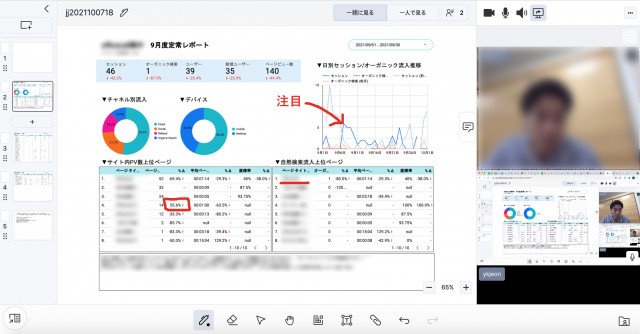How to Require Your Folk in Folk Horticulture Activities... tip number…
ページ情報
照会 8回
作成日: 23-02-24 02:11
본문
Plant crops compatible with each other in order to add even more efficiency to your garden. Plant crops that take longer to mature next to faster growing varieties. You can also get ahead of the season by planting cooler climate crops in the shade of larger summer crops. Greens such as lettuce do great in the shade of a large tomato plant.
To make your garden more productive, allocate space based on what grows best in your area instead of simply choosing your most favorite crops. Although you may love beets, if tomatoes grow better in your climate then give them more room in your garden and make your beet plantings smaller. Ask your neighbors or take a look around your area to see what grows best in your region.
Encourage toads to take up residence in your organic garden. Toads are a natural predator of many of the pesky bugs that will eat and destroy your crops. Create makeshift toad houses out of overturned broken clay pots and keep soil nice and moist to make it conducive to amphibian life.
Consider using weed-control cloth in your garden. Weeds cause a tremendous amount of work for any gardener. While the cloth is not the most attractive option, it does its job. If you place strips of the material in between the rows of your garden, it will keep out the vast majority of the weeds.
To make nutrient fertilizer from stuff you have around the house, look at what you have for breakfast. Both old coffee grounds and tea bags make an excellent fertilizer, especially when it comes to plants that love acid. Eggshells add alkaline to your soil, and bananas are the best source of the potassium that roses thrive on.
When digging holes for your plants, don't be a neat freak. Don't dig holes that are perfect, with sides that are as smooth as can be. You are actually making it more difficult for the root system of the new plant to take hold in the soil. For best results, keep your holes a little messy.
Try growing crops that are easy to store or store themselves. If handled properly and gently, given the right amount of time to cure, garlic, onions, sweet potatoes, squash, dry beans, or shallots will keep for a very long time in a cool, dry place. No canning or freezing required. This will ensure having fresh vegetables from the garden all winter long.
Ready to start growing Decorate Your Home own food via an organic garden? Do you know how to tart growing a garden like that? If not, no worries, this article has your back. Below are some Home Tips & Guides and tricks that can get you started with the basics of growing an organic garden.
There is so much that you can do in a garden, whether it is big or small. It truly is a wonderful hobby, and the possibilities are endless. Maybe some of the hints that you just read about are ideas that can get you even more enthusiastic about it!
When designing a garden area of your yard, a good place to start is with a tree or hedge as the anchor or structural foundation to Decorate Your Home garden. Plant grasses and perennials around the taller centerpiece plant to add texture, color and flow. In time, these plants will fill out as they grow and look splendid against the taller trees or shrubs in the background.
To get rid of the snails plaguing your garden, set an open container of beer on its side where you usually find them. The snails will be drawn to the scent of the beer and trap themselves. If you'd like to make this trap even more effective, try adding a little bit of brewer's yeast to the can.
When you are organic gardening in a humid environment, water your plants in the early morning hours. This will help you prevent mildew. Watering in the morning also prohibits fungal growth that can occur in humid climates. You do not want mildew or fungal diseases to spread, it can lead to poor growth and unhealthy soil.
Many people see organic gardening as a way to contribute to the safe-keeping of our beautiful planet. For others it presents the opportunity to put nutrient-rich and chemical-free food on the table. Both are laudible reasons. Whatever your reason is, you may find that these suggestions really help.
When using fertilizer, moderation can be the key to success. While it's true that using a fertilizer can enhance your garden's productivity, it's better to apply it sparingly. An overdose of fertilizer can cause excessive growth of the plant's foliage with stunted development of the fruit or vegetables thereby reducing your harvest.
Divide up your perennials while they still look healthy. It's best to divide a perennial at the end of the growing season during which it hits its peak. As the plant starts to overgrow, the center of the plant will start to have dying stalks and weaker flowers. Allowing perennials to grow too long may also lead to them overtaking neighboring plants.
When watering it's important to make sure that the water reaches all the way to the bottom of the soil. Roots that are grown closer to the surface are more likely to get damaged, and in turn produce plants that are less hardy and more susceptible to damage. By pouring water only on the top layer, the roots are forced to grow upwards and become shallower.
To make your garden more productive, allocate space based on what grows best in your area instead of simply choosing your most favorite crops. Although you may love beets, if tomatoes grow better in your climate then give them more room in your garden and make your beet plantings smaller. Ask your neighbors or take a look around your area to see what grows best in your region.
Encourage toads to take up residence in your organic garden. Toads are a natural predator of many of the pesky bugs that will eat and destroy your crops. Create makeshift toad houses out of overturned broken clay pots and keep soil nice and moist to make it conducive to amphibian life.
Consider using weed-control cloth in your garden. Weeds cause a tremendous amount of work for any gardener. While the cloth is not the most attractive option, it does its job. If you place strips of the material in between the rows of your garden, it will keep out the vast majority of the weeds.
To make nutrient fertilizer from stuff you have around the house, look at what you have for breakfast. Both old coffee grounds and tea bags make an excellent fertilizer, especially when it comes to plants that love acid. Eggshells add alkaline to your soil, and bananas are the best source of the potassium that roses thrive on.
When digging holes for your plants, don't be a neat freak. Don't dig holes that are perfect, with sides that are as smooth as can be. You are actually making it more difficult for the root system of the new plant to take hold in the soil. For best results, keep your holes a little messy.
Try growing crops that are easy to store or store themselves. If handled properly and gently, given the right amount of time to cure, garlic, onions, sweet potatoes, squash, dry beans, or shallots will keep for a very long time in a cool, dry place. No canning or freezing required. This will ensure having fresh vegetables from the garden all winter long.
Ready to start growing Decorate Your Home own food via an organic garden? Do you know how to tart growing a garden like that? If not, no worries, this article has your back. Below are some Home Tips & Guides and tricks that can get you started with the basics of growing an organic garden.
There is so much that you can do in a garden, whether it is big or small. It truly is a wonderful hobby, and the possibilities are endless. Maybe some of the hints that you just read about are ideas that can get you even more enthusiastic about it!
When designing a garden area of your yard, a good place to start is with a tree or hedge as the anchor or structural foundation to Decorate Your Home garden. Plant grasses and perennials around the taller centerpiece plant to add texture, color and flow. In time, these plants will fill out as they grow and look splendid against the taller trees or shrubs in the background.
To get rid of the snails plaguing your garden, set an open container of beer on its side where you usually find them. The snails will be drawn to the scent of the beer and trap themselves. If you'd like to make this trap even more effective, try adding a little bit of brewer's yeast to the can.
When you are organic gardening in a humid environment, water your plants in the early morning hours. This will help you prevent mildew. Watering in the morning also prohibits fungal growth that can occur in humid climates. You do not want mildew or fungal diseases to spread, it can lead to poor growth and unhealthy soil.
Many people see organic gardening as a way to contribute to the safe-keeping of our beautiful planet. For others it presents the opportunity to put nutrient-rich and chemical-free food on the table. Both are laudible reasons. Whatever your reason is, you may find that these suggestions really help.
When using fertilizer, moderation can be the key to success. While it's true that using a fertilizer can enhance your garden's productivity, it's better to apply it sparingly. An overdose of fertilizer can cause excessive growth of the plant's foliage with stunted development of the fruit or vegetables thereby reducing your harvest.
Divide up your perennials while they still look healthy. It's best to divide a perennial at the end of the growing season during which it hits its peak. As the plant starts to overgrow, the center of the plant will start to have dying stalks and weaker flowers. Allowing perennials to grow too long may also lead to them overtaking neighboring plants.
When watering it's important to make sure that the water reaches all the way to the bottom of the soil. Roots that are grown closer to the surface are more likely to get damaged, and in turn produce plants that are less hardy and more susceptible to damage. By pouring water only on the top layer, the roots are forced to grow upwards and become shallower.







